
MUCH of the land in the Waikato was cropped for wheat and barley in the late 1800s. By the turn of the century dairying had become the mainstay of farming, especially at Eureka. But today diversification has characterised the area. There are now three egg farms, one broiler farm and deer farming is also on the increase. Some of the smaller farms, particularly the ten acre blocks, raise goats for milking and angoras. Racehorse breeders are also found in the area although dairying still predominates.
Blueberry farming is rapidly gaining ground at Eureka, Newstead and Gordonton. The first blueberry farm at Eureka -Blueberry Hill-started in 1980.
"If you draw a circle around Eureka (including the neighbouring districts) you would find the heaviest concentration of blueberry growers anywhere in New Zealand," said one of the partners in the venture.
Mr Brian Gordon of Eureka commented that blueberry farming has taken off in the Waikato because the plant prefers peat soil. The naturally low pH balance and good supply of moisture are ideal. Blueberry farms had gamed popularity over the last four years and early predictions indicated it would be profitable, he said. The market realisations are yet to be seen.
Blueberry Hill, on Eureka Road, was started by Mr Tom Hinton and three partners. Perched on a hill overlooking Eureka-hence the name-it also has a man-made lake, named after Mr Hinton's wife.
Lake Claire is approximately one hectare and was formed in 1980 because the high iron content in the area made the ground water unsuitable for irrigation.
Blueberry Hill will not be in full production until 1988 or 1989. An estimated summer workforce of 50 to 60 people would be required then to pick berries-80 to 90 tonnes of them. Two-thirds of the pickings would go to the United States and a small percentage to Europe, Australia and Japan. Some of the fruit will also go to the local processing industry for jams and flavourings.
The farm covers two seperate 2.4 hectare blocks and Blueberry Hill plan further blocks in the future. There is also quite a large nursery on the property where the bushes grown are sold to other growers or used for replacement.
There is an active Blueberry Group meeting at Eureka now. Formed three years ago for growers in the area, it now takes in Gordonton growers as well. They meet regularly to share information on the industry. In the future it is envisaged a centralised packing and grading facility and cool store will be set up to handle the fruit from surrounding districts.
Several other farm advisory groups have been formed at Eureka over the years. The Eureka branch of Federated Farmers has been active since the forties, both politically and as an advisory group. Their meetings vary from discussions on farming topics to educational trips and film evenings. Visiting speakers keep the group up to date with farming developments.
Several schemes benefiting the farmers in the area and their employees have also been set up through the branch. The cadetship scheme previously mentioned is one.
Eureka Cull Cow Pool: This pool was formed by Federated Farmers chairman Bill Saunders and secretary Ralph Masters in 1954 to supply cull cows from local farmers to Producer Meats Co-Op. For every cow supplied 25 cents was paid into a fund to be used for the benifit of the Eureka district. Mr Stan Peters was appointed co-ordinator of the Pool, a task he performed admirably for 20 years before his retirement to town.
Farm Labour Scheme: Twenty farmers banded together in the fifties to start the scheme. They built a house and employed a worker to take over their farms if they were ill or wanted to go on holiday. At the inaugural meeting in July 1957 Mr Lester Masters was appointed chairman. The rate for the employee was to be four shillings and threepence an hour. The scheme was finally wound up in 1981.
It ended because the whole structure of the district seemed to change, according to Mr Ralph Masters, its secretary for 18 years. Itbegan with 20 members and fell to 12. It then became too costly to run. Originally every farmer was dairying and milking, he said. Later, as farming patterns changed, this sort of assistance was no longer required on farms.
Japanese students exchange programme: The branch has also participated in an exchange scheme between the Japanese Government and Federated Farmers in New Zealand. The programme has been operating for 20 years. Farm trainees from Japan come to Eureka and work on a farm for a year, said spokesman Mr Wally Pollock. A number ofstudents had visited the district and Eureka had become quite a Japanese centre, he said.
New Zealanders had not been sent there in large numbers because of the language barrier. Mr Pollock said that with the growing interest in horticulture New Zealanders would soon be sent over to Japan.
Farm Discussion Group: This group was first convened by Peter Hildreth about twenty years ago.
It disbanded and was then reconvened by Mr Brian Gordon about five years ago.
A farm advisor from the Ministry of Agriculture and Fisheries comes to the group's monthly meetings and farming problems are discussed. This helps farmers to keep in touch with new research and techniques.
International Agricultural Exchange Association: Since 1979 about three students a year have visited Eureka through the scheme. They come from America, Canada, Europe and Britain. The association organises the travel experience for young people from rural areas in the participating countries.1
They have a chance to work and study a different type of farming. At present there are 15 different countries involved in the programme. The trainee is also paid an allowance. ln New Zealand the programme was first run by the Young Farmers Club which has also been active at Eureka.
The farming locality of Eureka today is approximately 15 kilometres north-east of Hamilton in the Waikato County. It has grown in area and population over the last century and is now included in the Ruakura Riding.
The riding's population in the 1981 census was 1648.
The buildings which made up Eureka village's nucleus have disappeared: the butter factory, the station, the corner store and the post office.
Instead, sited at the crossroads today are the school, Eureka Hall and Eureka Motors.
Eureka Motors opened for business in January 1961. Its original owner, Mr Joe Stockman, said he had been living in Auckland when he heard that Eureka's store was looking for a buyer for its petrol pumps. Originally from Holland, he had worked as a mechanic in Ngaruawahia and settled in Auckland when he married Noeline.
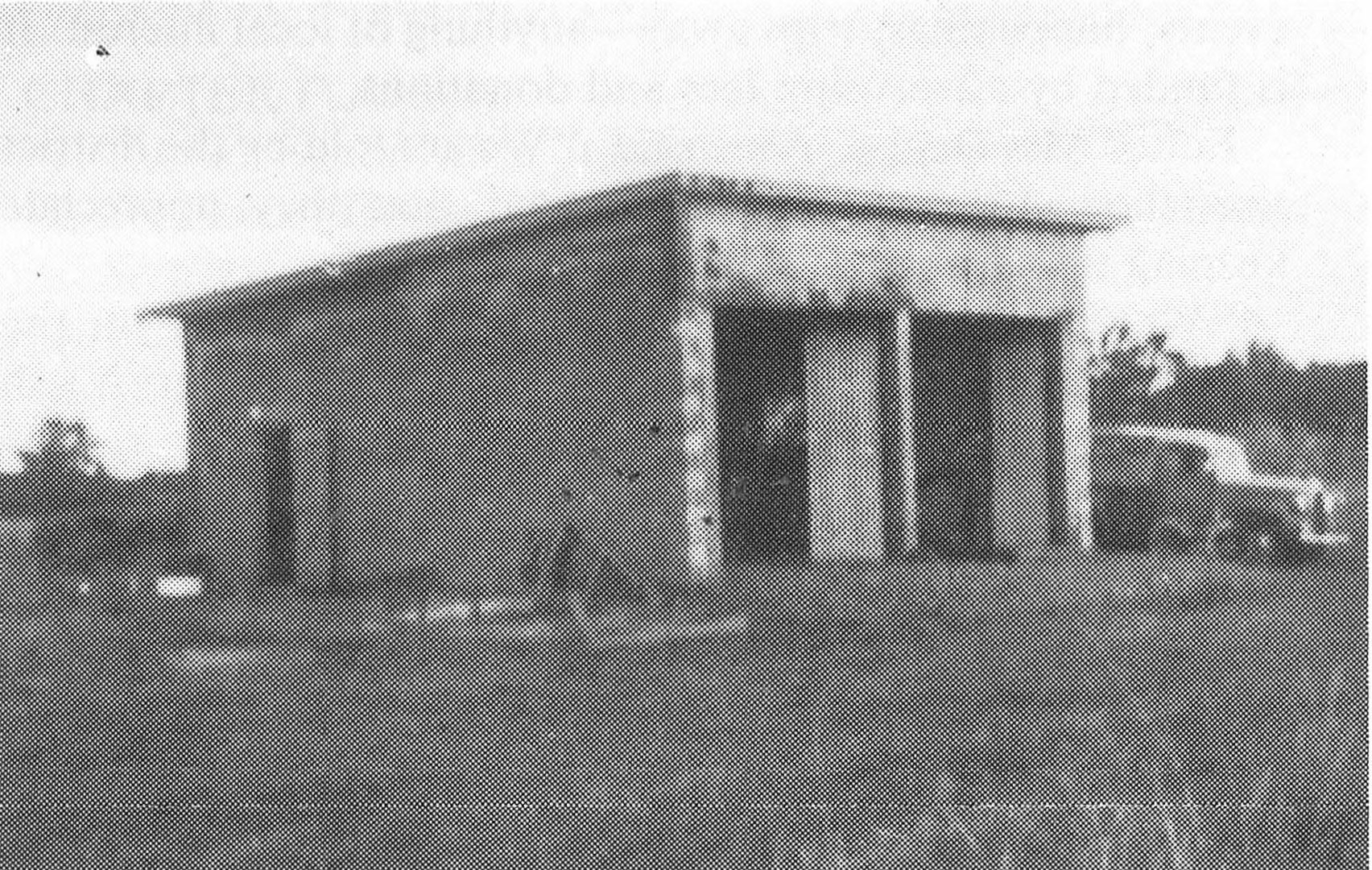
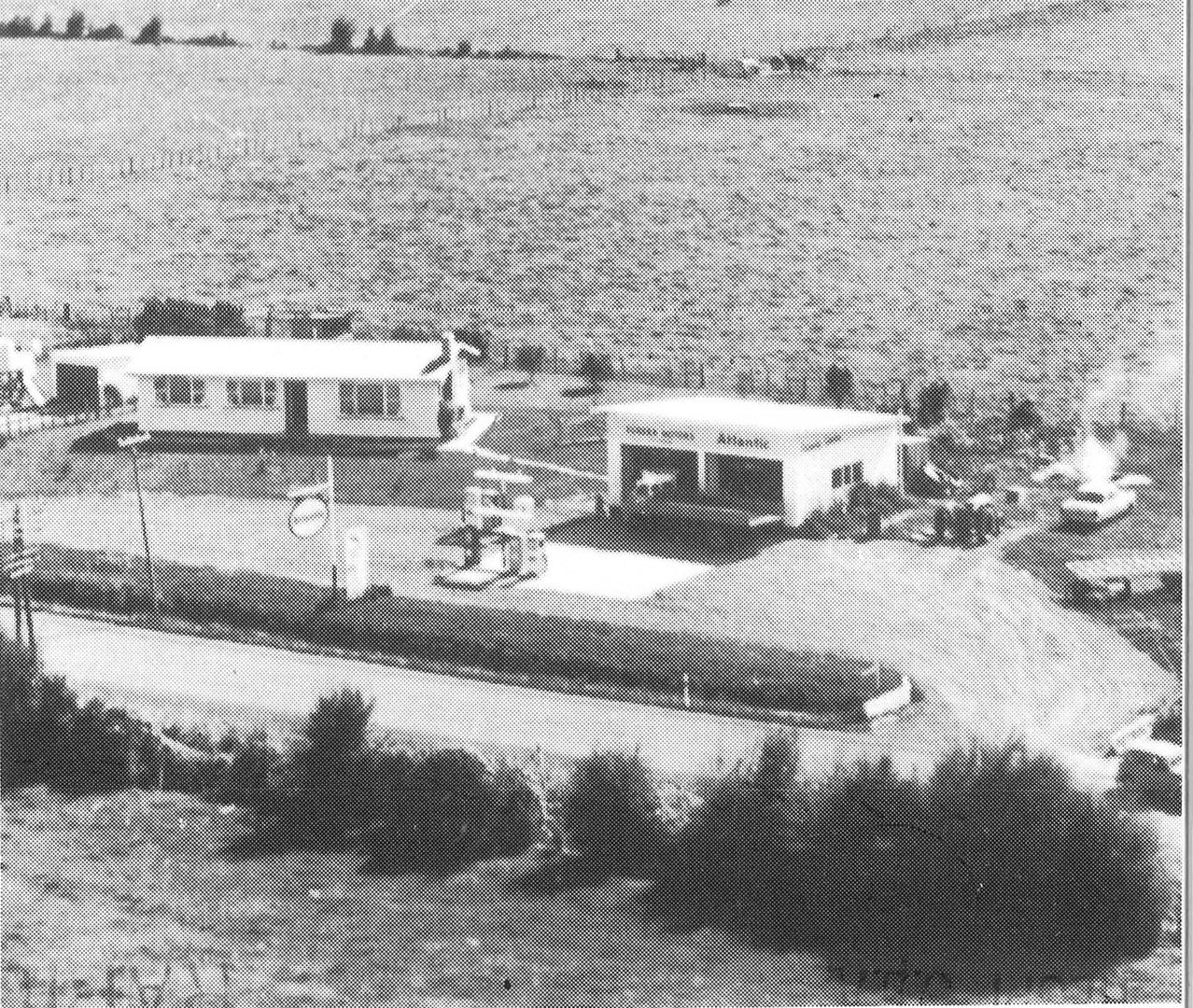
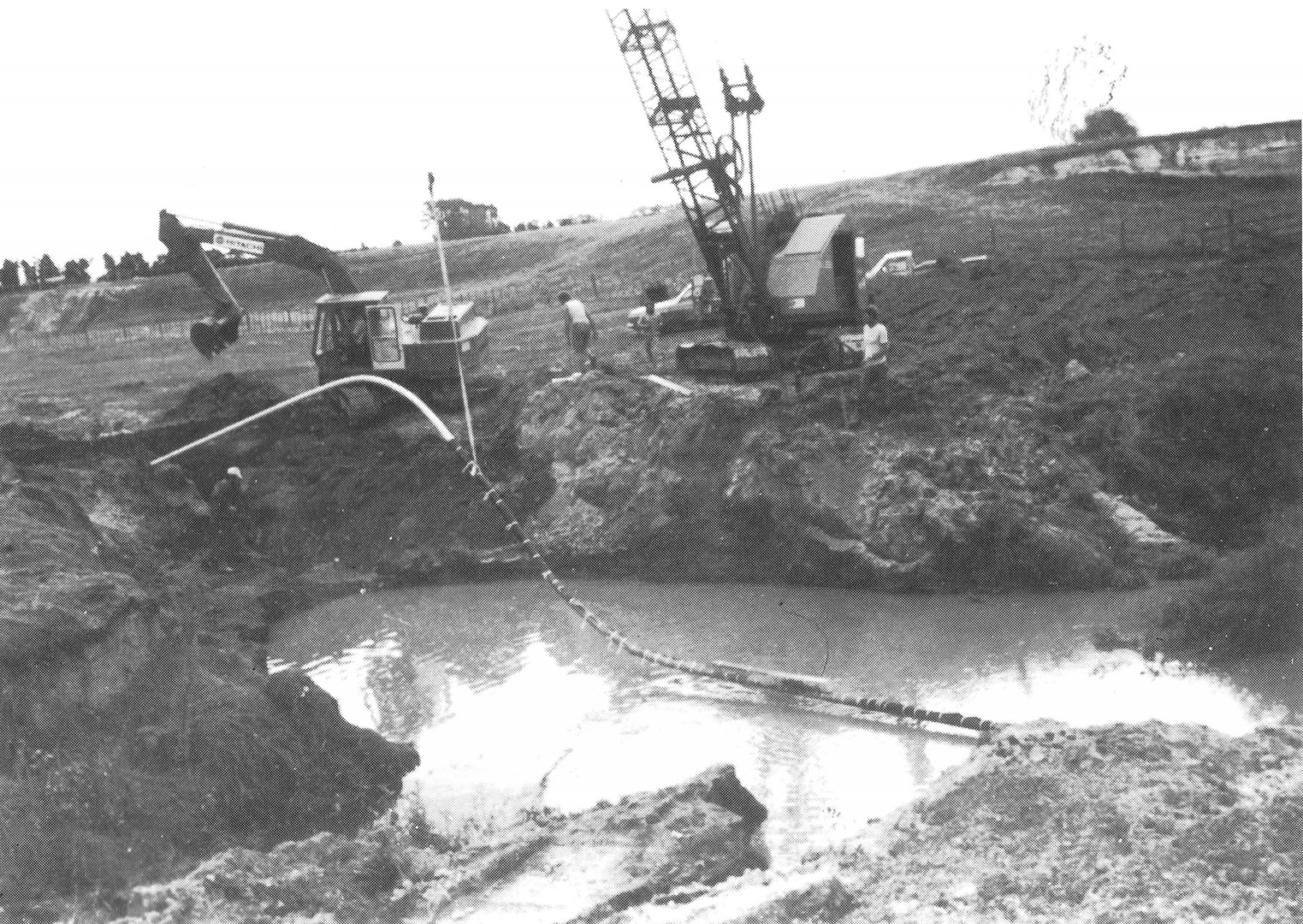
He had always wanted to open his own business and when he heard about the land available at Eureka his decision was made.
Like Archimedes, he declared "Eureka, I have found it!" He purchased an acre of land from Mr Lester Masters and the pump licence from the Campbells. He also built a workshop and after tidying the surroundings the Stockmans opened Eureka Motors. Within two years they had built a new house on the section.
The business grew from strength to strength. In late 1971 they bought the store and ran the Post Office, shop and garage for two years. It was quite a family affair with their three children, Anton, Karen and Mark helping out on the pumps and in the store. It became a meeting place for the women folk when they came to leave their children at school. They also stopped in to pick up their milk, bread and newspapers.
Mr Stockman recalled one night when a woman drove into the garage at 3 a.m. with her horn blaring and lights blazing. The Stockmans thought she was being murdered. It turned out that she had nearly run out of petrol. He charged her $5 for two gallons and when she questioned the price, he retorted: "For emergency services you have to pay emergency prices." The Stockmans sold the store to the Langdons and Mr Colin Duncan took over the garage in February 1977. Mr Duncan began as an apprentice at the garage 13 years ago. He still owns the garage today. While an apprentice he won the Kinsella Cup awarded to the best mechanic in the Waikato for three consecutive years.
Joe and Noeline Stockman stayed in Eureka when they sold the garage having built a house on a 4 hectare block in Eureka Road.
Activities at Eureka's hall have also increased over the years and it has remained one of Eureka's focal points. The Ladies' Social Club still continues, so does the Indoor Bowling Club and the Badminton Club and local fund-raising events are held at the hall. In late 1983 a casino evening was held there to raise funds for a video for the school.
And in March 1980 a monthly bulletin, the Eureka Express was started by enterprising locals.
The first issue came out on March 26 and it has been going now for five years. The monthly newsletter includes school events, happenings, trips away-anything of local interest. It is funded by advertising fees and donations.
Editor Mrs Denise Irvine said: "We are told by the district that they enjoy the newsletter and that they appreciate keeping up with what is happening.
"We feel the paper has had a beneficial affect on the district socially and trust that with continued support it will continue to do so."
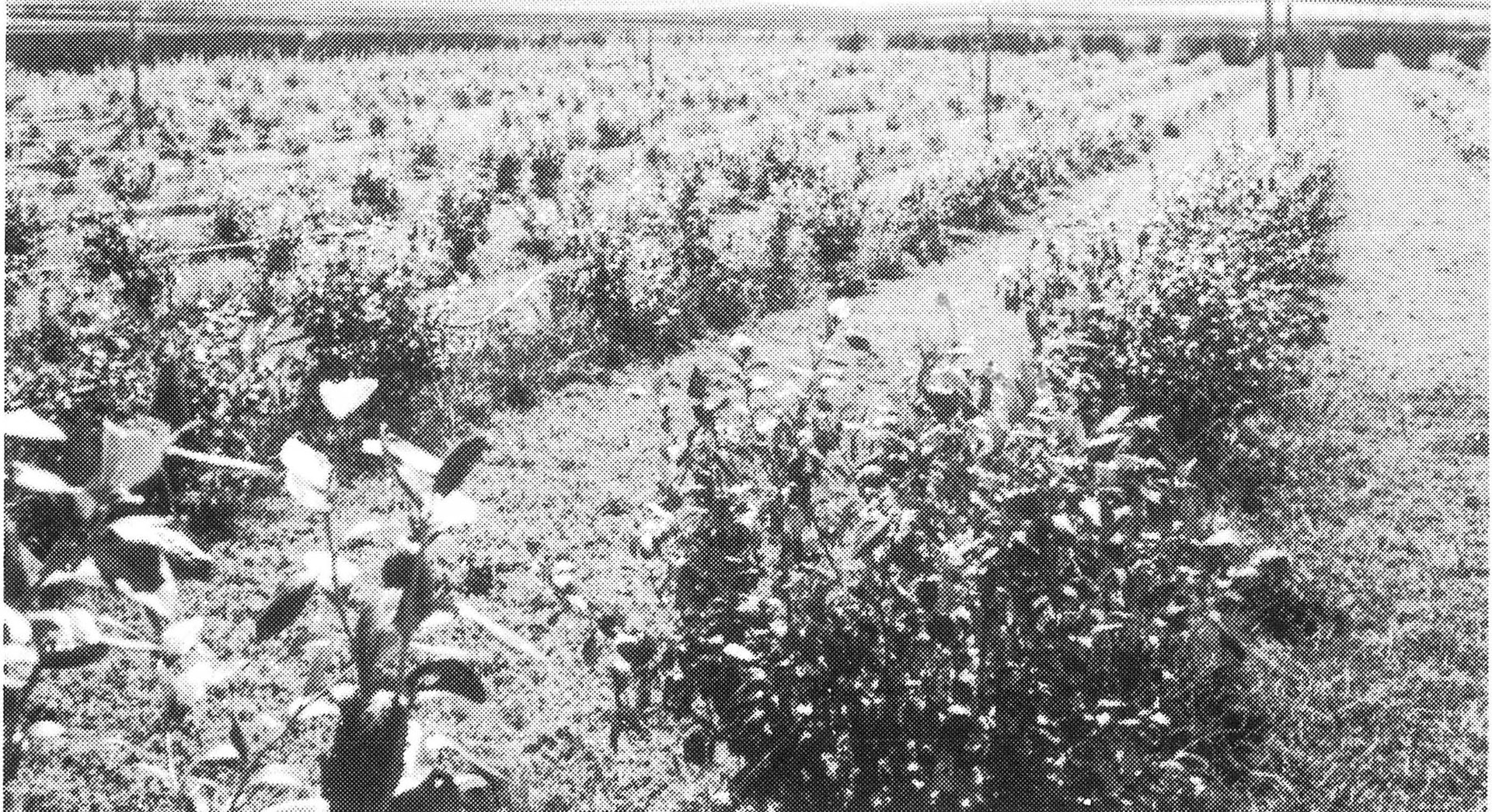
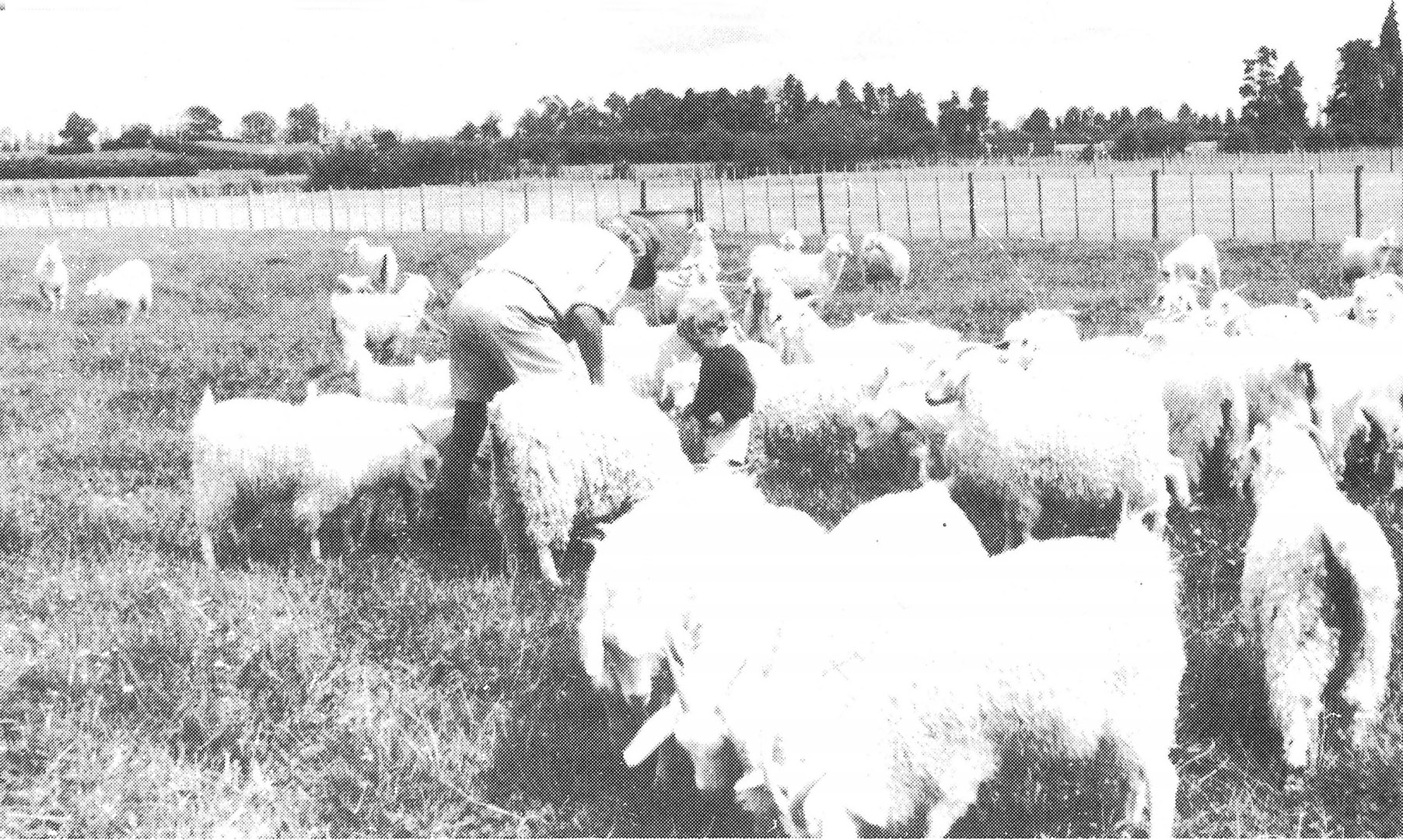
References: Eureka 1874-1984, published by The Eureka Express, 1985
